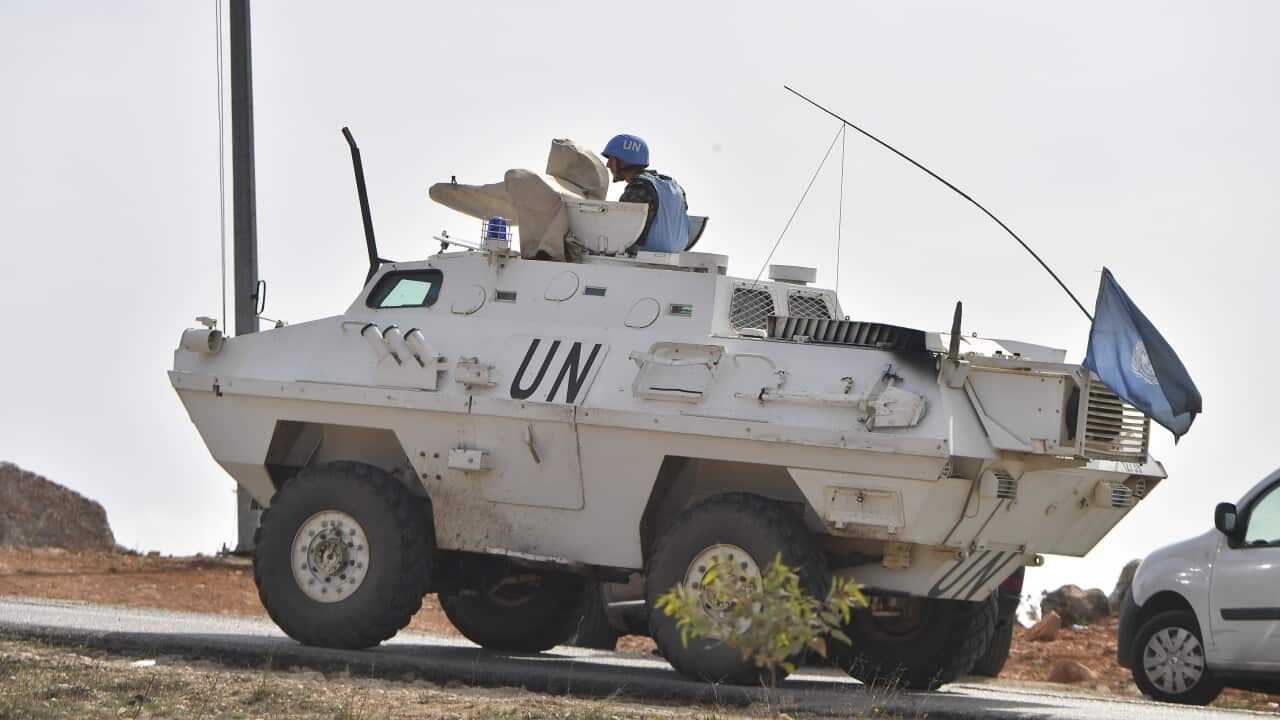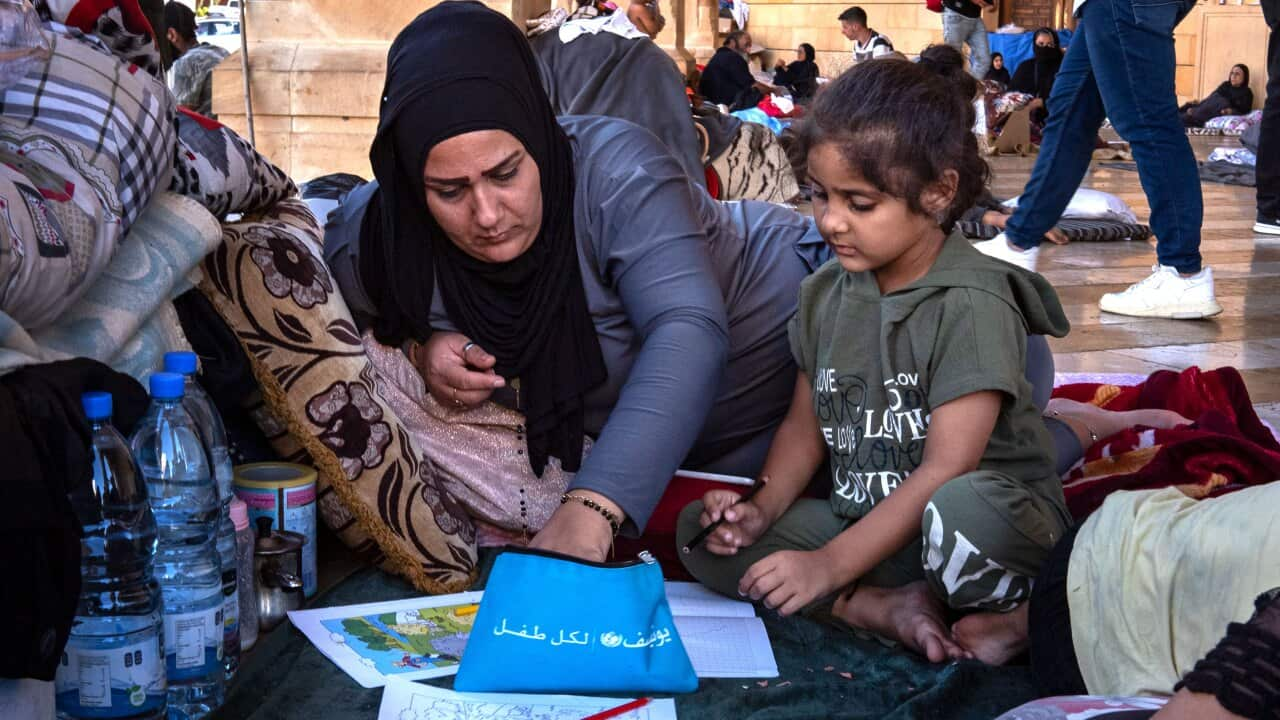There are concerns for the welfare of a dozen Australian peacekeepers stationed in the Middle East after and called for UN observers to leave their positions ahead of its ground operation in southern Lebanon.
Australia has 12 peacekeepers in the region including southern Lebanon as part of a United Nations peacekeeping mission, known as UNIFIL, to monitor hostilities between Lebanon and Israel.
Their job is to patrol on foot to observe and report on incidents that could breach the peace at the border.
Initially, UNIFIL's role was to confirm the withdrawal of Israeli forces from southern Lebanon and help the Lebanese government restore its authority there, but in 2006 that remit was broadened to monitor cross-border tensions in the aftermath of the war between Israel and Lebanese militant group Hezbollah.
Last week, ahead , Israel asked UNIFIL — or the UN Interim Force in Lebanon — to vacate some positions, including those close to the Blue Line - the demarcation line between Lebanon and Israel.
The request was rejected, with Jean-Pierre Lacroix, the UN under-secretary-general for peace operations saying UNIFL remained "united and committed" to its mandate.
Retired Australian army officer Stuart McCarthy said the peacekeepers, including the Australian contingent, are "particularly vulnerable" because they are unarmed and their safety rests on the willingness of the parties to respect their status under international law.
"The recent IDF request for UNIFIL/UNTSO to withdraw from specific positions near the Israel/Lebanon border is alarming, suggesting those peacekeepers and military observers may be at increased risk," he told SBS News.
"The ADF's (Australian Defence Force's) contribution to UNTSO is a small but tangible element of Australia's national commitment to upholding UNSCR 1701 and international calls for de-escalation, long pre-dating the recent escalations, so it would be encouraging to hear our government publicly call for the IDF (Israel Defence Forces) and Hezbollah to refrain from targeting UNIFIL/UNTSO positions, as we've heard other troop contributing governments do in recent days, including Ireland."
UNTSO, the United Nations Truce Supervision Organization, was the first ever UN peacekeeping mission and was established in 1948 to observe and maintain ceasefires in the Middle East.
Overnight, UNIFIL issued a statement saying it was deeply concerned for the welfare of the peacekeepers because of activities of IDF troops inside Lebanese territory.
Irish media reported that an Israeli tank moved close to an Irish UN post.
"This is an extremely dangerous development," UNIFIL said.

Australia currently has 12 peacekeepers delpoyed to the Middle East as part of UNTSO. Credit: POIS Lee-Anne Cooper
"UNIFIL urgently reminds all actors of their obligations to protect UN personnel and property."
An IDF spokesperson told the Financial Times UNIFIL is given warnings to make sure: "they are not in harm's way when there are clashes with Hezbollah".
Earlier this year, an monitoring activity near the Israeli-Lebanon border.
Ian Lindgren from the Australian Peacekeeper and Peacemaker Association says the Australian troops' jobs have become more important in an increasingly dangerous situation.
"It is crucial — that is no doubt whatsoever. They're actually performing their role," Lindgren told SBS News.
"It is a dangerous situation. We've got to be very wary of it, and we've got to maintain the peace, and we need those peacekeepers there to assist doing that and to report on what's happening."
The ADF does not comment on force protection measures for security reasons.
In a statement, the ADF would not go into whether any of the peacekeepers would be removed from their posts.
"All personnel are safe and accounted for," a Defence spokesperson told SBS News.
Lindgren said the peacekeepers often find themselves in the middle of fire from both sides.
"It can get quite dangerous, quite quickly," he said.
"These peacekeepers are classified as being in a non-war like zone, and clearly they're not."
Lindgren said the classification was important because peacekeepers then have a greater burden of proof to show they were injured, as well as the potential denial of veteran's benefits.











